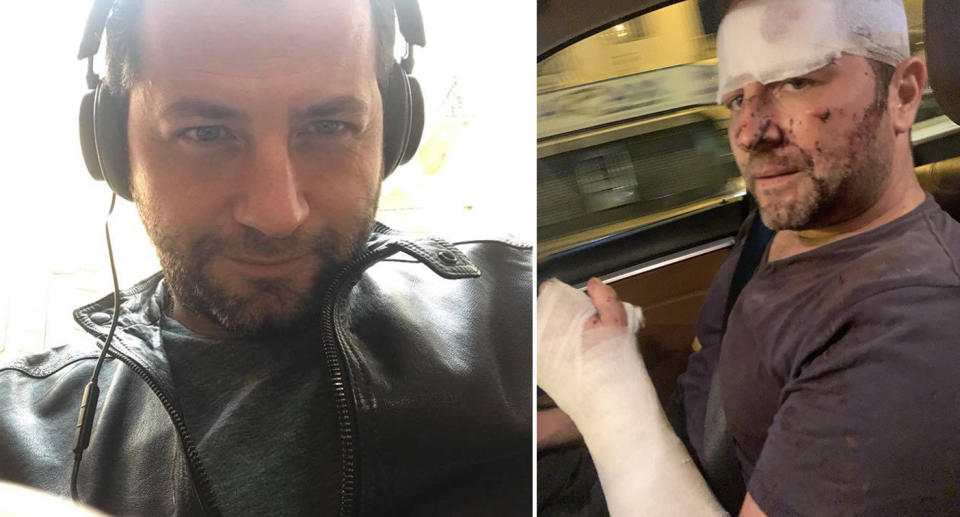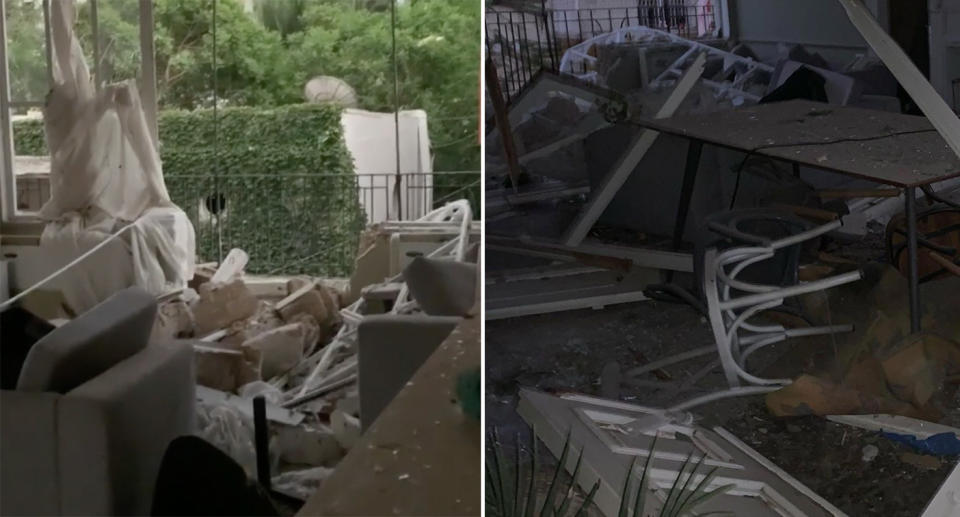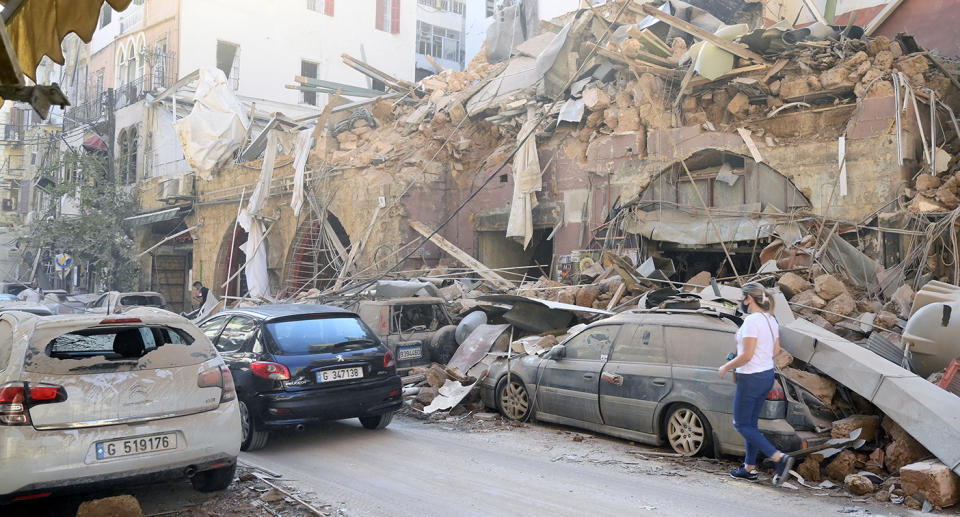Australian man's horror as friends 'ripped apart' in Beirut explosion
An Australian man has told of the moment his friends were “ripped apart” before his eyes in the devastating explosion that rocked Beirut and killed at least 100 people.
Omar Jheir, an Australian man who lives in Lebanon with his wife, was in his apartment only 500 metres from the city’s port when the blast occurred.

The effects of the explosion and its shock wave were felt as far away as Cyprus, with Lebanese seismologists saying the blast was equivalent to a 4.3-magnitude earthquake.
Mr Jheir, from North Parramatta, owns a hotel, restaurant and coffee shop in Beirut and told the Daily Telegraph his businesses were all destroyed in the blast.
In a first-person account to the publication, Mr Jheir said he had opened the windows to look at the smoke pluming from the industrial area.

“We opened the windows to look and within three seconds there was a huge explosion. The sheer magnitude of it was more powerful than anything I have ever experienced,” he said.
“I was thrown against the wall, bruising my ribs, and my house just collapsed around us.
“My friends, my neighbours, my customers, they were just ripped apart. There was blood gushing out of their faces.
“There were people on the floor dead. It was devastating.”

With cuts all over his face and body and a broken hand, Mr Jheir tried to find safety.
He wasn’t wearing shoes and his feet were “cut to ribbons” as he walked down the street.
“I grabbed two table sheets to bandage them until I saw a friend and he gave me his shoes,” he said.
Amidst the chaos, and with dust so thick he could barely see, Mr Jhein attempted to make it to the closest hospital, but it had collapsed in the explosion.
After trying four more hospitals, he was finally able to be treated.

“Whoever is responsible, we have got to get rid of a government that allowed this to happen and has ripped this country apart,” he said.
Mr Jhein had only been back in Lebanon for a month after returning to Australia to get married.
The deadly mix that caused explosion
A deadly concoction of fireworks and ammonium nitrate appear to have been the fuel that ignited the blast that rocked the country’s capital, experts and videos of the blast suggest.
The scale of the damage - from the epicentre of the explosion to the windows blown out kilometres away - resembles other blasts involving the chemical compound commonly used as an agricultural fertiliser.

Online videos of the disaster's initial moments show sparks and lights inside the smoke rising from the blaze, just prior to the massive blast.
The explosion was the most powerful ever to rip through Beirut, a city still scarred by civil war three decades ago and reeling from an economic meltdown and a surge in coronavirus infections.
Do you have a story tip? Email: newsroomau@yahoonews.com.
You can also follow us on Facebook, Instagram and Twitter and download the Yahoo News app from the App Store or Google Play.



